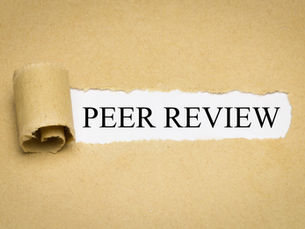top of page

Explorations in Science and AI


Inside the Flatiron Institute: Where algorithms and inquiry shape modern science
The Flatiron Institute stands out for its bold model: full-time scientists, open-source tools, and a mission to accelerate discovery through computation. Its success across fields—from astrophysics to neuroscience—reflects the power of that approach.


Inside the Flatiron Institute: Where algorithms and inquiry shape modern science
The Flatiron Institute stands out for its bold model: full-time scientists, open-source tools, and a mission to accelerate discovery through computation. Its success across fields—from astrophysics to neuroscience—reflects the power of that approach.

Charles Q. Choi
Jul 15


FirstPrinciples
Feb 7


Luna Zagorac
Jun 18, 2024


Inside the Flatiron Institute: Where algorithms and inquiry shape modern science
The Flatiron Institute stands out for its bold model: full-time scientists, open-source tools, and a mission to accelerate discovery through computation. Its success across fields—from astrophysics to neuroscience—reflects the power of that approach.

Charles Q. Choi
Latest Articles


Scientists Are Leaving Academia for Industry, Here’s Why It’s Happening Now
More scientists are leaving academia, trading tenure-track hurdles for the speed and flexibility of industry. For physicist Elizabeth Frank, that shift meant moving from mapping Mercury to mining the Moon — swapping publication bottlenecks for the fast, interdisciplinary problem-solving of space startups, and using AI to revive data gathered half a century ago.

Bryné Hadnott
3 days ago


Where quantum breakthroughs begin: Inside Columbia University’s culture of collaboration
At Columbia University, quantum breakthroughs emerge from a culture of shared labs, ideas, and materials. What began as informal collaboration has become a scalable model for cross-disciplinary science that powers advances in programmable quantum systems.

Lucila Pinto
Aug 13


Sabine Hossenfelder on AI, bad physics, and why science needs reform
She’s one of the internet’s sharpest scientific voices: equal parts physicist, critic, and communicator. In this candid conversation, Sabine Hossenfelder reflects on AI, the flood of low-impact theory papers, and how a scientific culture ripe for reform could finally be ready for change.
Colin Hunter
Jul 22


Peer review in the age of AI: When scientific judgement meets prompt injection
Hidden prompts buried in preprints show how easily large language models (LLMs) can be manipulated, exposing a deep vulnerability in science’s quality-control system. As artificial intelligence (AI) becomes part of the scientific review process, traceability and transparency must become new norms, not afterthoughts.

FirstPrinciples
Jul 16


Why science literacy could be the most important skill you never learned
In an era of misinformation, understanding science is essential for informed decision-making. True scientific literacy goes beyond reading or quick online searches—it empowers individuals to think critically, evaluate evidence, and discern credible information from misleading claims.

Ethan Siegel
Apr 15


Serious physicists are talking about UFOs. What changed?
Scientific research about unexplained aerial phenomena — the term that’s supplanting “unidentified flying objects” — is on the rise.
Colin Hunter
Feb 20


New particle collider? New space telescope? This principle helps scientists decide
“Discovery potential” reflects the gap between today’s best scientific tools and what current (or projected) technology could enable.

Ethan Siegel
Jan 13


Cosmology 101 and the challenge of science communication
Astrophysicist Katie Mack discusses the art of distilling intricate, interconnected ideas into concise, accessible, and engaging videos.

Katie Mack
Nov 7, 2024


SciPost, a case study in open science
Envisioned as a fee-free alternative to the traditional academic publishing model, funding shortfalls threaten SciPost’s future.

FirstPrinciples
Oct 16, 2024


Is it time for “publish or perish” to perish?
Science needs to stop rewarding publication quantity over quality – or risk missing out on major breakthroughs.

FirstPrinciples
Sep 17, 2024


Sometimes a theorist’s job is to be wrong
Astrophysics is so awash in experimental data that theorists are bound to often be fruitfully wrong about what it all means.

Luna Zagorac
Aug 30, 2024


Small data can make for big science
Luna Zagorac started her astrophysics career at a small telescope where she learned that, in research, bigger doesn't mean better.

Luna Zagorac
Aug 6, 2024


Is peer review failing its peer review?
The state of peer review is “pretty bad," according to a watchdog monitoring the rising flood of retracted papers, but fixes are possible.

FirstPrinciples
Jul 12, 2024
Become a contributor for the Hub
Share your thought-provoking content with our community of curious minds.

bottom of page



















